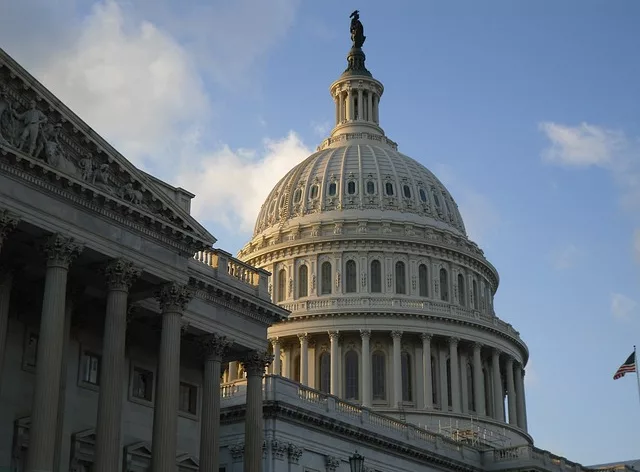Defense Budget Warning From Joint Chiefs of Staff

The Chairman of the Joint Chiefs of Staff warns that PCS moves and military construction projects may be threatened if lawmakers in the House and Senate can’t agree to a full-year defense budget. The DoD would be nearly $6 billion short if a full-year Pentagon spending bill cannot be agreed to.
A Brief History of the Government Funding Debacle
In September of 2023, the House and Senate could not agree to approve a federal budget for 2024 by the September 30 deadline. October 1 is the start of the new fiscal year for the Defense Department, and no permanent 2024 funding bill was drafted ahead of that deadline.
October 1, 2023 came and went. The current fiscal year’s federal funding ran out, and the government was kept open by a last-minute continuing resolution to fund the government for a few more weeks before the entire problem must be tackled all over again.
At press time, the continuing resolution is set to expire, there is still no National Defense Authorization Act, and the solution that some lawmakers want is to agree to yet another temporary funding measure. But that proposal is fraught with problems, according to defense officials.
The Chairman of the Joint Chiefs of Staff warned, “DoD has never operated under a year-long CR; it would be historically costly to the Joint Force.” That’s according to Gen. Charles Brown, who wrote to the Senate Appropriations Committee about not passing a “traditional” federal funding bill.
How Does A Continuing Resolution Hurt The Military?
By not passing a National Defense Authorization Act (NDAA) for the new fiscal year, the federal government stays open, but no new programs may begin until the usual type of funding is approved. New housing construction would be delayed, as would infrastructure improvements.
Under a continuing resolution, the federal government cannot progress, it’s simply treading water until permanent funding is in place. A full-year defense budget is required, not a temporary solution.
Military.com reports the current stopgap measure that supports most Pentagon operations expires on February 2, 2024 with military construction project funding expiring on January 19 2024.
If a temporary solution is the only thing in effect come 1 January, military members still have to receive their annual pay raise; does the military have to pull money out of other projects to do so? Will the troops be forced to wait for their raise and get it retroactively?
These are questions lawmakers don’t seem to be asking, and the perception among some is that scoring political ego points at the expense of military families is more important to some Senators and Representatives.
The House and Senate owe it to active duty, Guard, Reserve, and family members to consider the sacrifices made by those who would be negatively affected by a government shutdown or yet another stopgap solution that does not improve the quality of life for those who serve.
Related:
About the author
Editor-in-Chief Joe Wallace is a 13-year veteran of the United States Air Force and a former reporter/editor for Air Force Television News and the Pentagon Channel. His freelance work includes contract work for Motorola, VALoans.com, and Credit Karma. He is co-founder of Dim Art House in Springfield, Illinois, and spends his non-writing time as an abstract painter, independent publisher, and occasional filmmaker.


